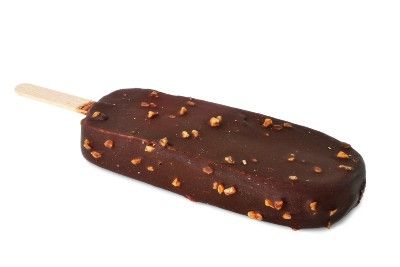Top Class Actions’s website and social media posts use affiliate links. If you make a purchase using such links, we may receive a commission, but it will not result in any additional charges to you. Please review our Affiliate Link Disclosure for more information.
Whole Foods ice cream bars are misrepresented as being coated in “decadent” chocolate, according to a recent class action lawsuit.
Plaintiff Mandell Mitchell says he and other consumers were misled by Whole Foods’ Chocolate & Almond Vanilla Ice Cream Bars sold under the retailer’s Organic 365 value brand. The products are reportedly labeled with a variety of representations that use terms such as “chocolate coating” and “decadent” to describe the ice cream bars.
Unfortunately, according to the class action lawsuit, these representations were false and intended to mislead consumers like Mitchell about the contents and quality of the Whole Foods ice cream bars.
Instead of containing only chocolate, the “chocolate coating” on the ice cream bars allegedly contains vegetable oils.
The ingredient list on the Whole Foods ice cream bars reportedly shows the products contain ingredients found not in real chocolate such as organic expeller pressed palm kernel oil. This ingredient in particular is reportedly found higher up on the ingredient list than organic cocoa butter.
As such, the “unqualified, prominent and conspicuous representation” that the ice cream bars are covered in chocolate is allegedly misleading. Mitchell says a more accurate description of the chocolate coating would be “milk chocolate and vegetable fat coating.”
Mitchell notes that, when consumers see representations regarding chocolate, they assume the product comes from the real source — cacao beans.
Unadulterated chocolate reportedly gives “greater satiety” and “a creamy and smooth mouthfeel,” which consumers are willing to pay a higher price for.
In contrast, ingredients such as vegetable oils, which are substituted for pure chocolate, reportedly provide “less satiety,” a “waxy and oily mouthfeel” and an unpleasant aftertaste.
Due to the vast differences in quality between pure chocolate and imitation products, the U.S. Food and Drug Administration (FDA) has implemented clear chocolate standards.
Under these standards, labeling of a chocolate product must indicate if the chocolate mixture contains optional ingredients such as vegetable oils, cacao fat, nutritive carbohydrate sweeteners, spices, natural and artificial flavorings, dairy ingredients and emulsifying agents.
Through these standards, consumers are reportedly able to rely on chocolate labeling to truthfully disclose the quality of the chocolate they purchase.
However, according to Mitchell, Whole Foods ice cream labeling fails to comply with these standards. As a result, consumers are allegedly misled about the quality of the Whole Foods ice cream bars’ chocolate coating.
“Defendant’s branding and packaging of the Product is designed to — and does — deceive, mislead, and defraud plaintiff and consumers,” Mitchell argues in his Whole Foods ice cream class action lawsuit. “Defendant sold more of the Product and at higher prices than it would have in the absence of this misconduct, resulting in additional profits at the expense of consumers like plaintiff.”
According to the Whole Foods ice cream bar class action lawsuit, Mitchell and other consumers have been injured by the company’s conduct because they were deceived into paying a higher price for the products than they otherwise would have.
Mitchell seeks to represent a Class of consumers in New York who purchased the Whole Foods ice cream bars.
On behalf of himself and the proposed Class, Mitchell seeks monetary damages, restitution, disgorgement and injunctive relief requiring Whole Foods to change the labeling representations on their ice cream bars.
Did you purchase Whole Foods ice cream bars? Did you believe the product contained real chocolate coating? Share your thoughts in the comment section below.
Mitchell and the proposed Class are represented by Spencer Sheehan of Sheehan & Associates PC.
The Whole Foods Ice Cream Class Action Lawsuit is Mandell Mitchell, et al. v. Whole Foods Market Group Inc., Case No. 1:20-cv-08496, in the U.S. District Court for the Southern District of New York.
Read About More Class Action Lawsuits & Class Action Settlements:
Häagen-Dazs Class Action Lawsuit Says Ice Cream Bars Aren’t Dipped In Real Milk Chocolate
DOJ Files Lawsuit Over Melania Trump Tell-All Book

















86 thoughts onWhole Foods Class Action Lawsuit Says Ice Cream Bars Are Falsely Advertised
Add me
Add me to this one too
Please add me
Please add me
Add me please